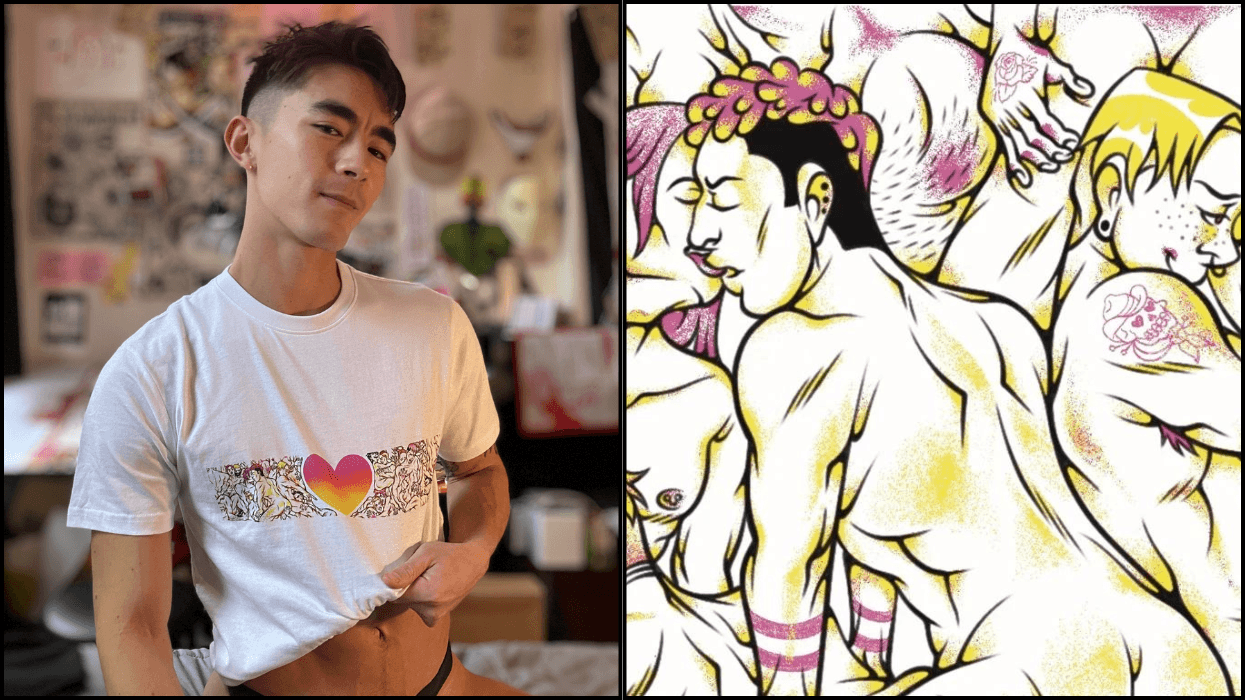
Why are some gay guys so mean? David Luc Nguyen looks for answers and finds Lindsay Lohan.
June 29 2007 12:00 AM EST
November 17 2015 5:28 AM EST
By continuing to use our site, you agree to our Private Policy and Terms of Use.

Why are some gay guys so mean? David Luc Nguyen looks for answers and finds Lindsay Lohan.
"A single text message changed my life," says 20-year-old Aaron Layton. "Last year I got a text that contained only a Web address. When I entered the address into my computer I found pictures of me in my most intimate moments with my ex-boyfriend. The words slut and whore were plastered all over the pictures." It turns out one of Layton's friends had stolen the photos from his room. He posted them to hurt Layton, who had shown interest in one of the friend's old flames. "I got 'mean-girled,' " says the Seattle native.
For the uninitiated, to be "mean-girled" is to suffer emotional distress caused by someone else telling personal information, lies, or rumors.
The term comes from the 2004 Lindsay Lohan high school flick Mean Girls, which centered on girls who use bullying and put-downs to gain traction within their social group. The movie has a huge queer following, and many young gay men emulate and glorify the film's cattiness.
The Web site created by Layton's "frenemy" mirrored a plot point in Mean Girls. To document their disdain for the less popular, "the plastics" (three attractive, admired, and feared girls) create a "burn book"--snapshots of classmates containing derogatory captions, which are then made public.
Perhaps Layton should have seen it coming. He and his friends anointed themselves the gay version of the plastics.
"To survive in the clique I learned how to play head games on 'social retards,' " says Layton. "I became a gossipmonger. I hoped to pit everyone against each other so I would be seen as the most likable.... I'm not proud of the way I acted."
Layton's not alone. The daily cattiness on PerezHilton.com and PinkIsTheNewBlog.com--gossip sites run by Generation X gay guys--seem to have taken a page from Mean Girls and possibly its '80s precursor, Heathers. "Hollywood and blogs are only perpetuating the stereotype that it's cool to tear other people down," says 22-year-old Jamie Anderson from San Francisco. Anderson's clique follows the Mean Girls model, though he says he's a passive spectator when it comes to bullying. He thinks young gay men torment each other to pass on the same kind of oppression they've experienced in the past. "Most of us grew up feeling different from everyone else and remember what a lonely feeling that was. As we grow up, we join the gay community and feel we're in the majority for the first time. Power changes victims into bullies."
Mac Partlow, a Seattle-based psychotherapist, echoes Anderson's theory: "Social violence is the tragic transference of the rage of being brutalized some other time, some other place, upon a perceived 'acceptable target.' It's the instinctual need to balance the scales in a terribly inappropriate way."
Gay-on-gay bullying is as old as tearooms and Oscar Wilde, says Kathy Carroll, another therapist from Seattle. "All men are vulnerable to harassment due to the way they may choose to express their gender. If a man doesn't play sports or act in a certain way, he's singled out for that difference. I think some gay men bully each other because they are struggling with the limited ways all men have to express [themselves] and, at the same time, what it means to be a gay man."
Want more breaking equality news & trending entertainment stories?
Check out our NEW 24/7 streaming service: the Advocate Channel!
Download the Advocate Channel App for your mobile phone and your favorite streaming device!

